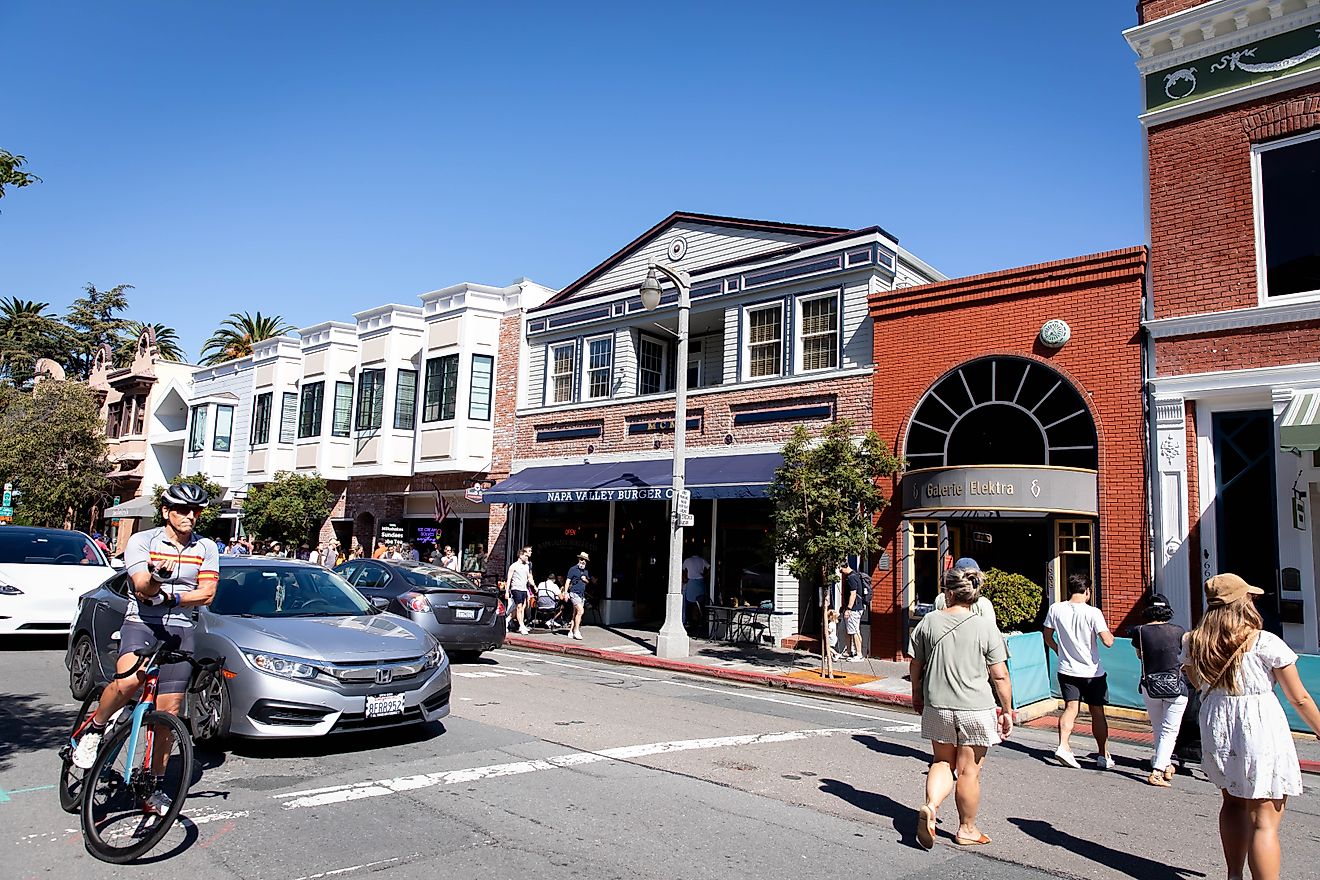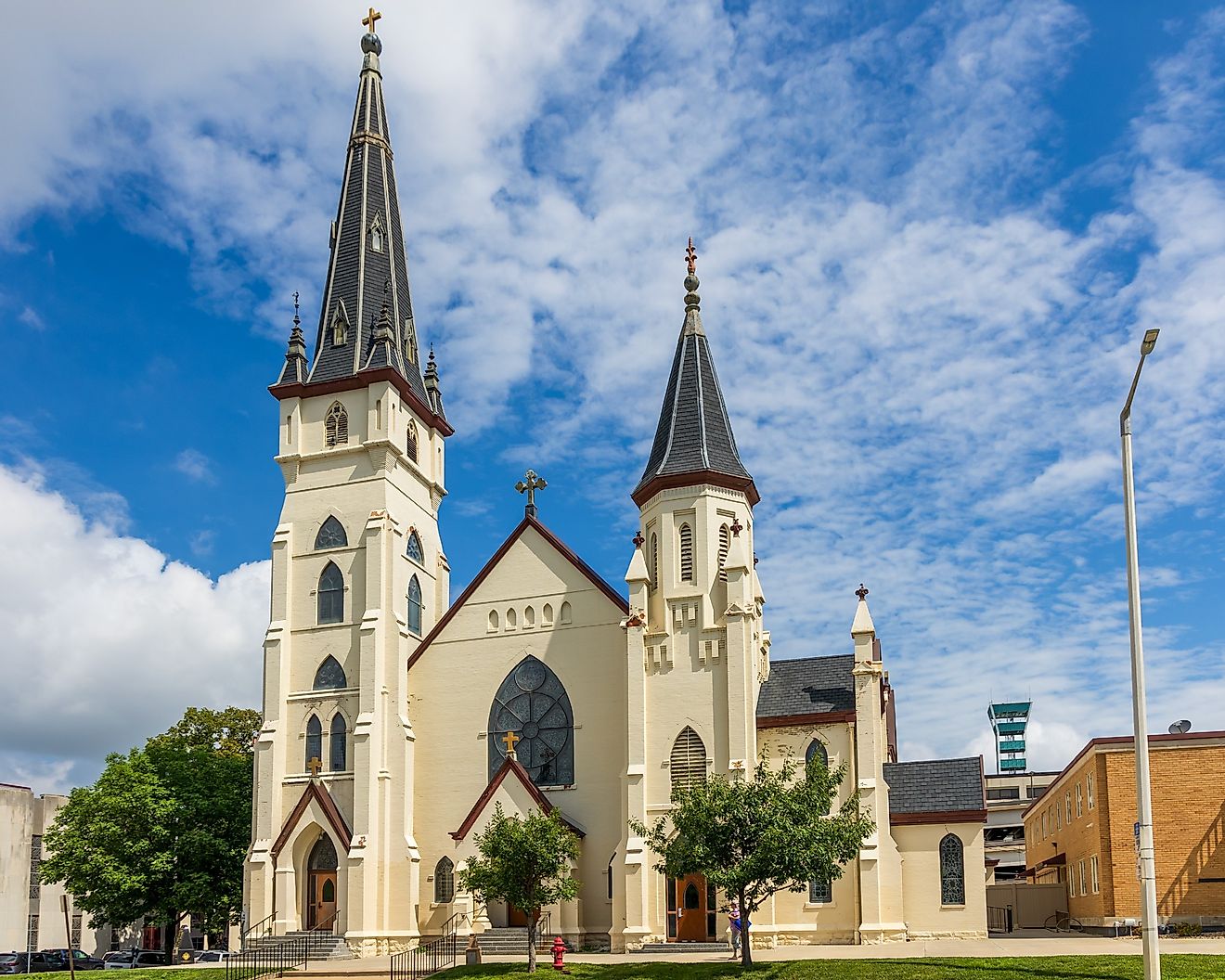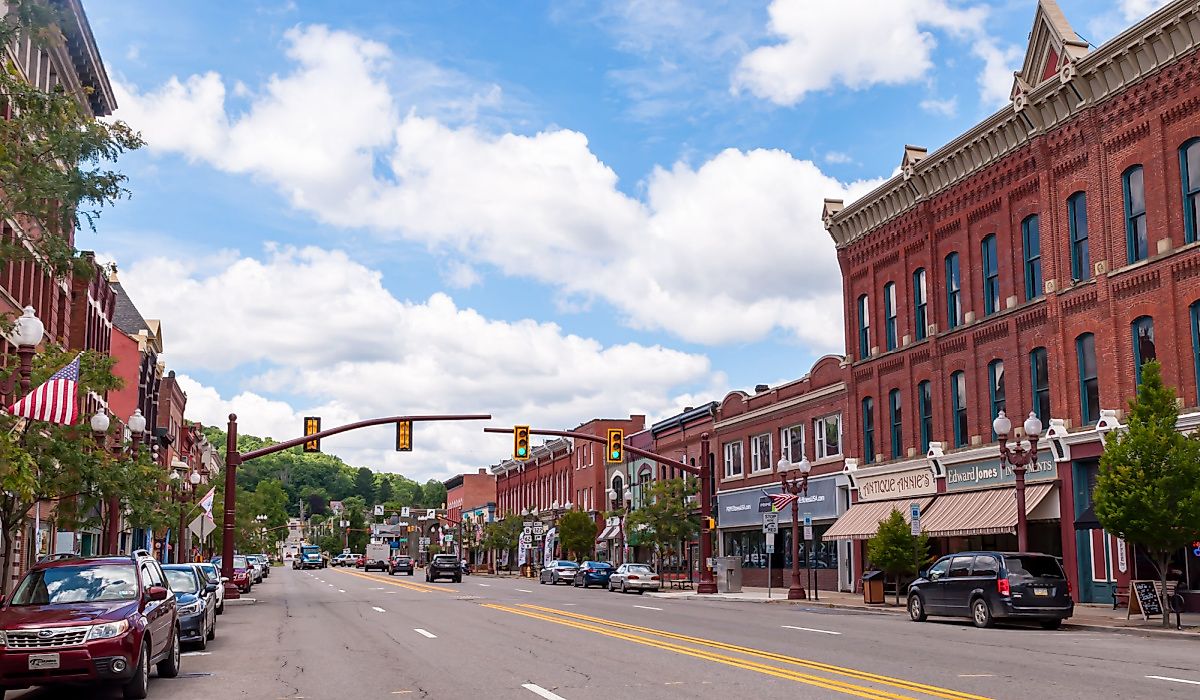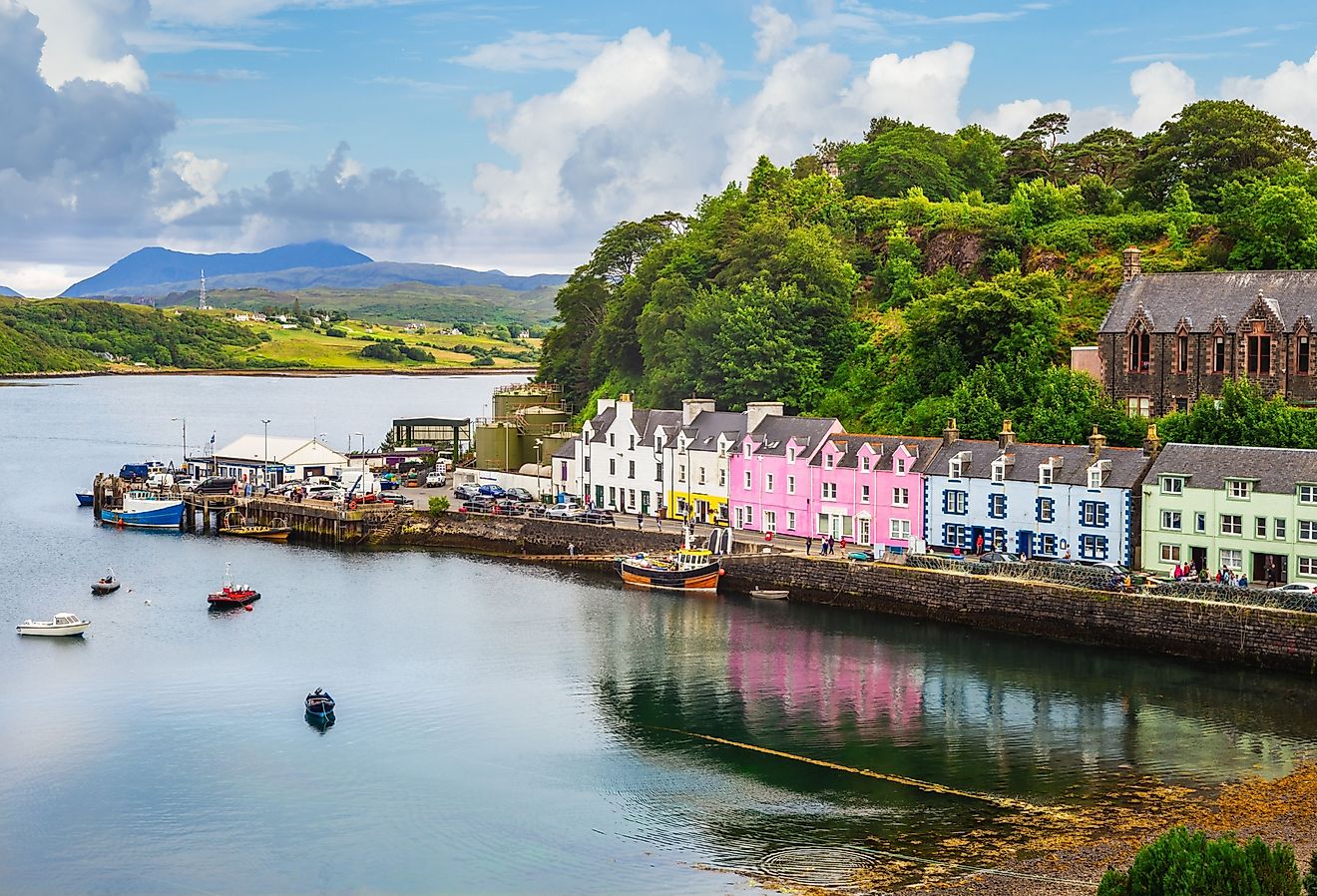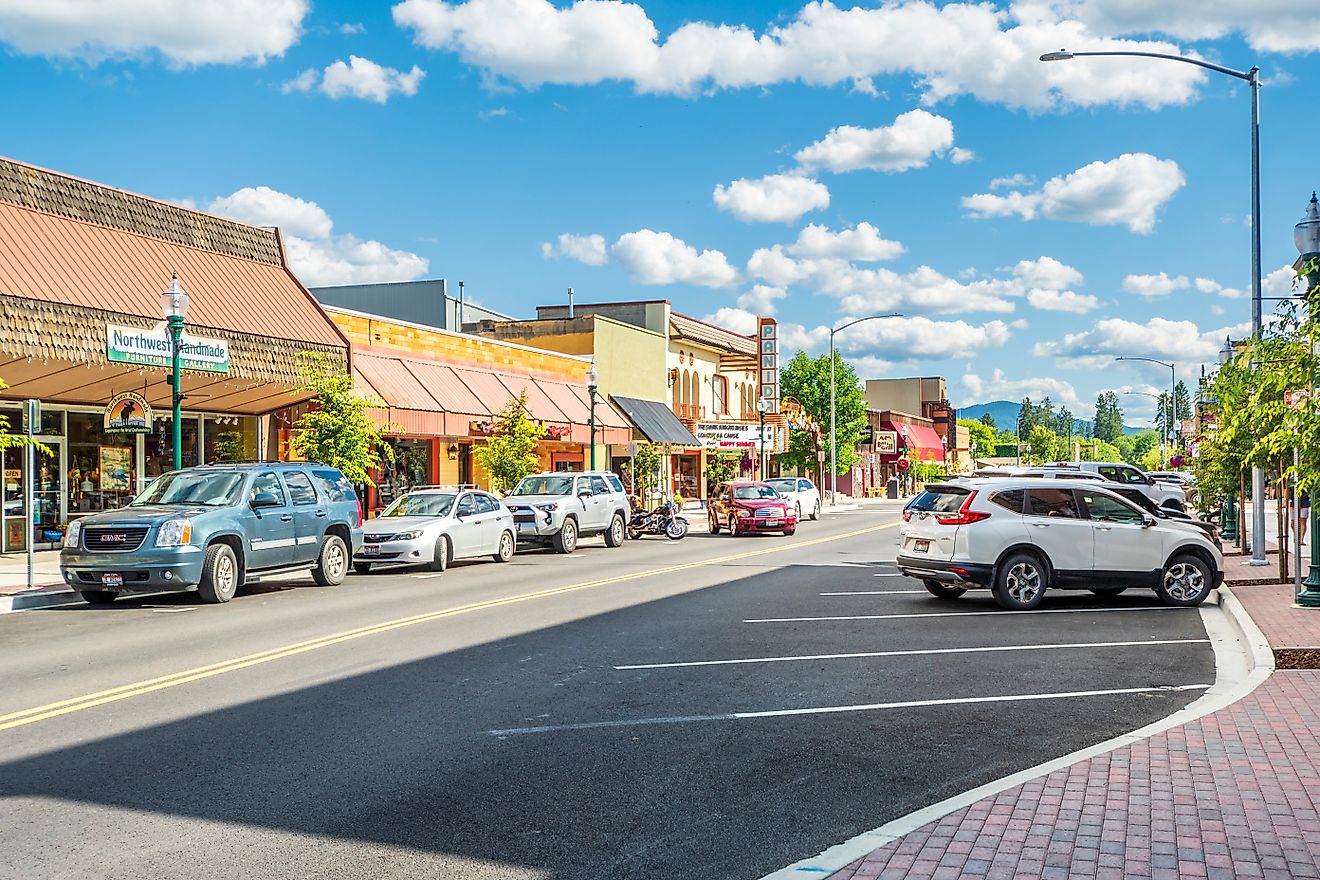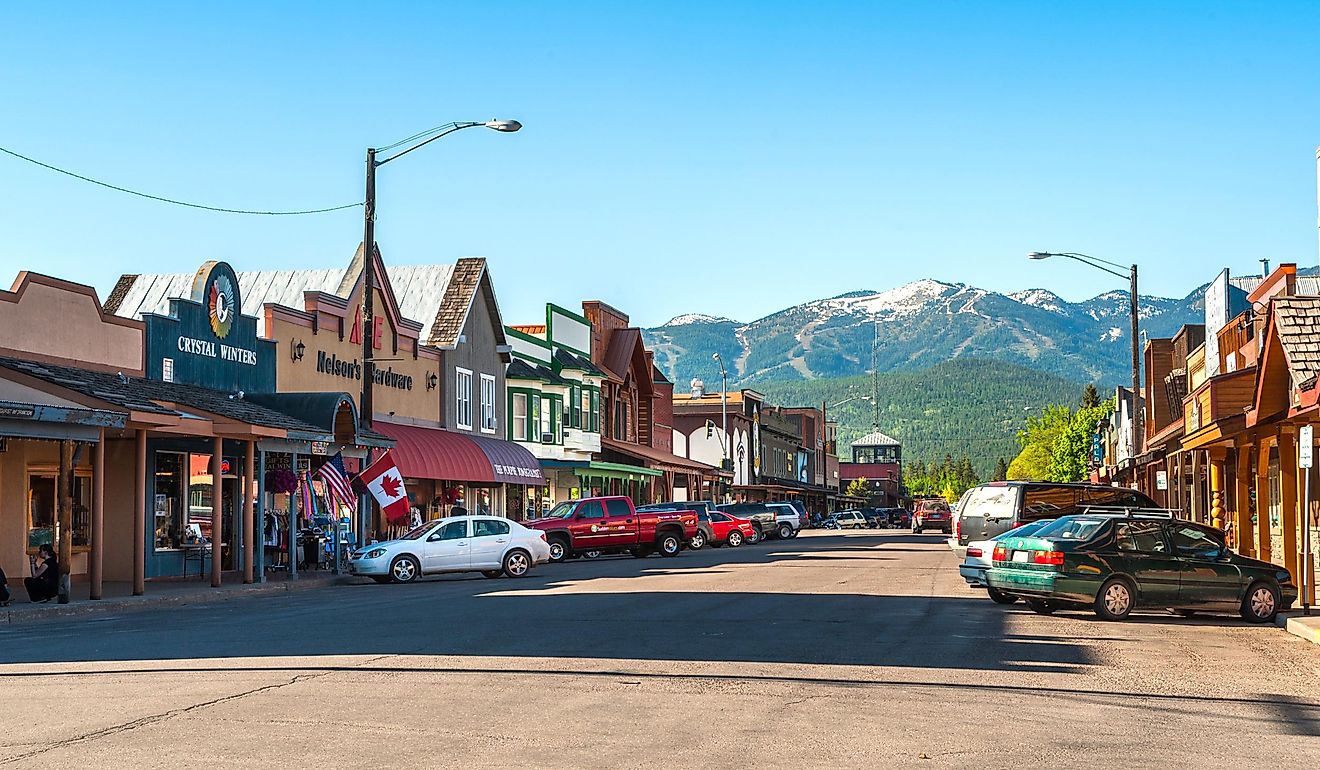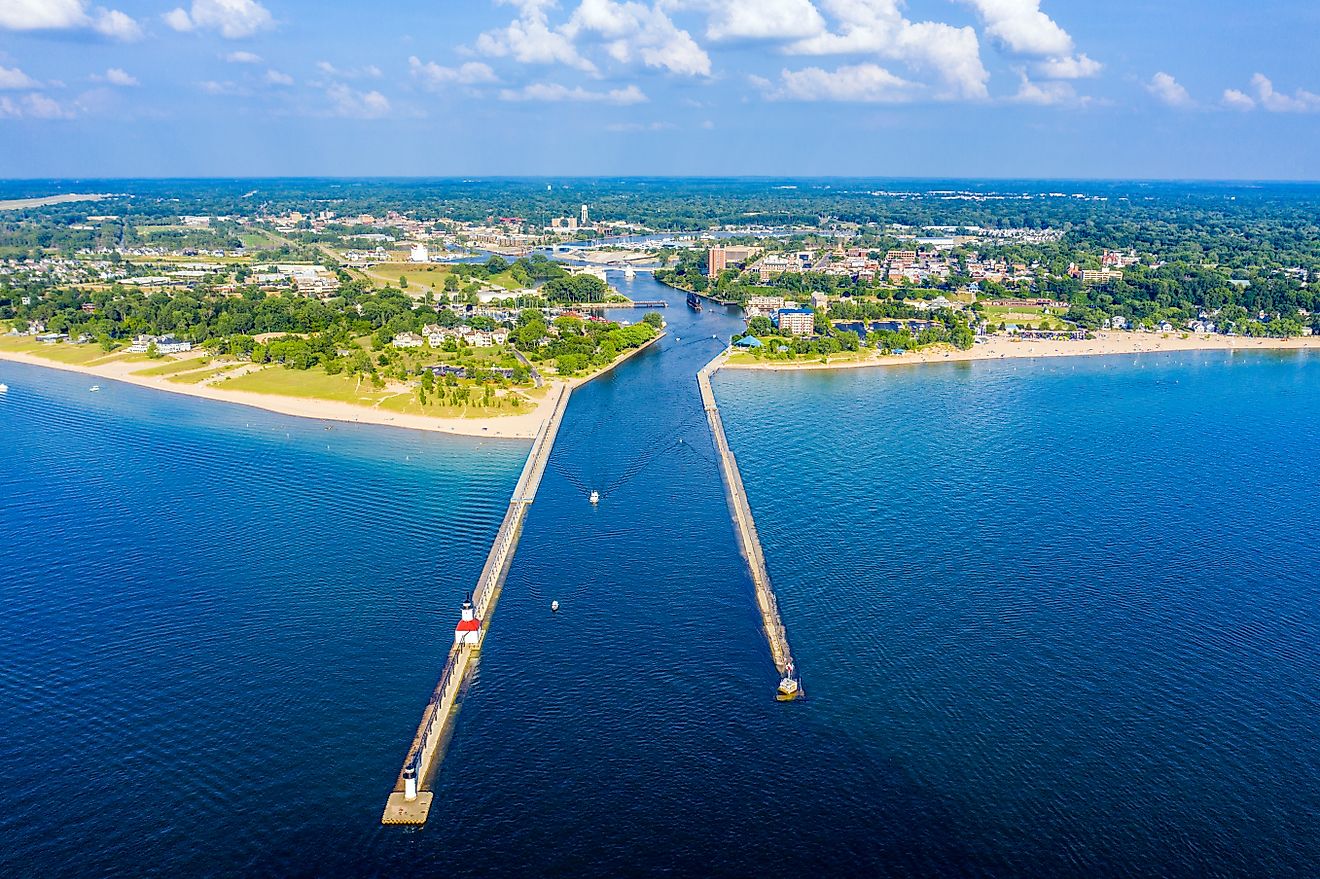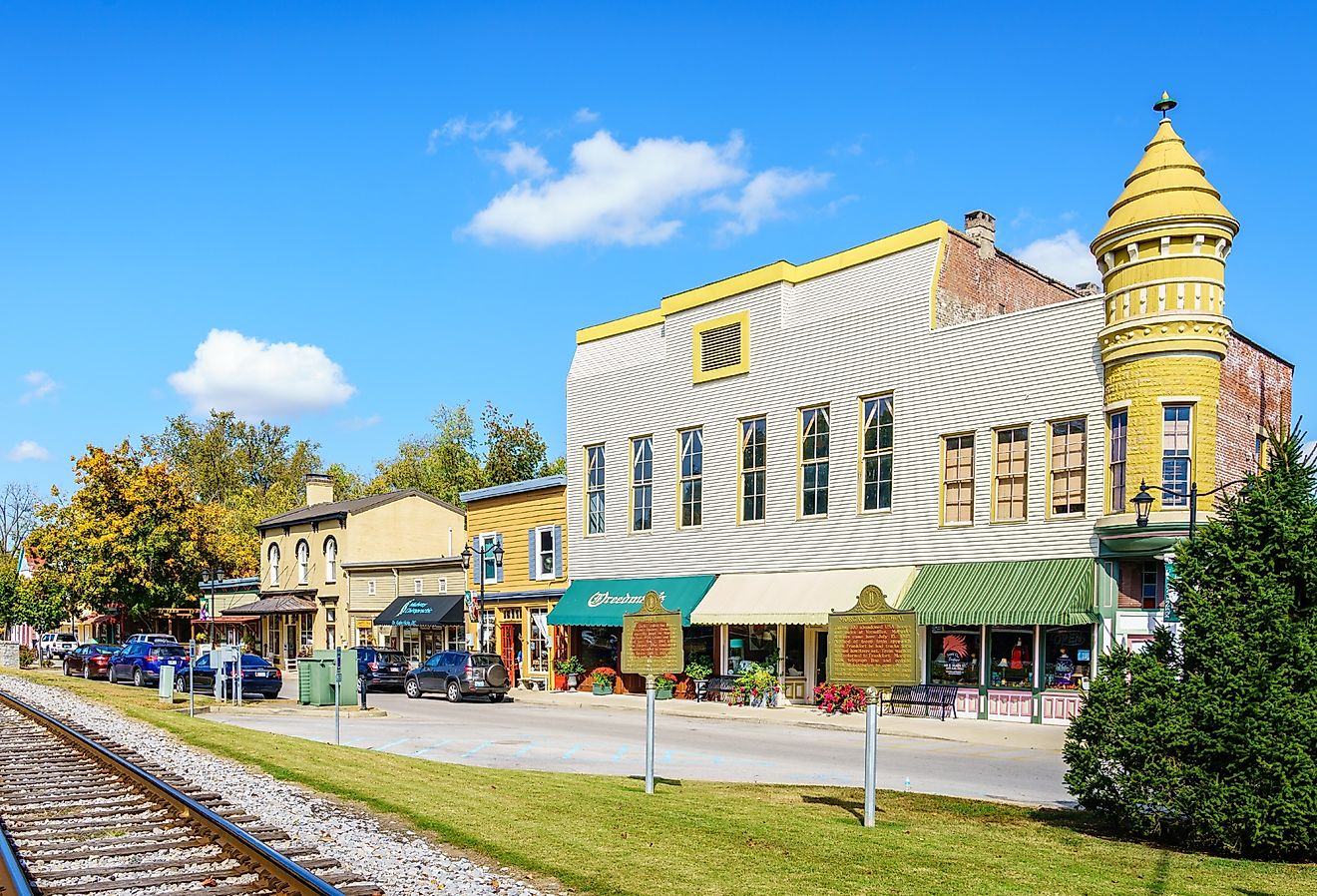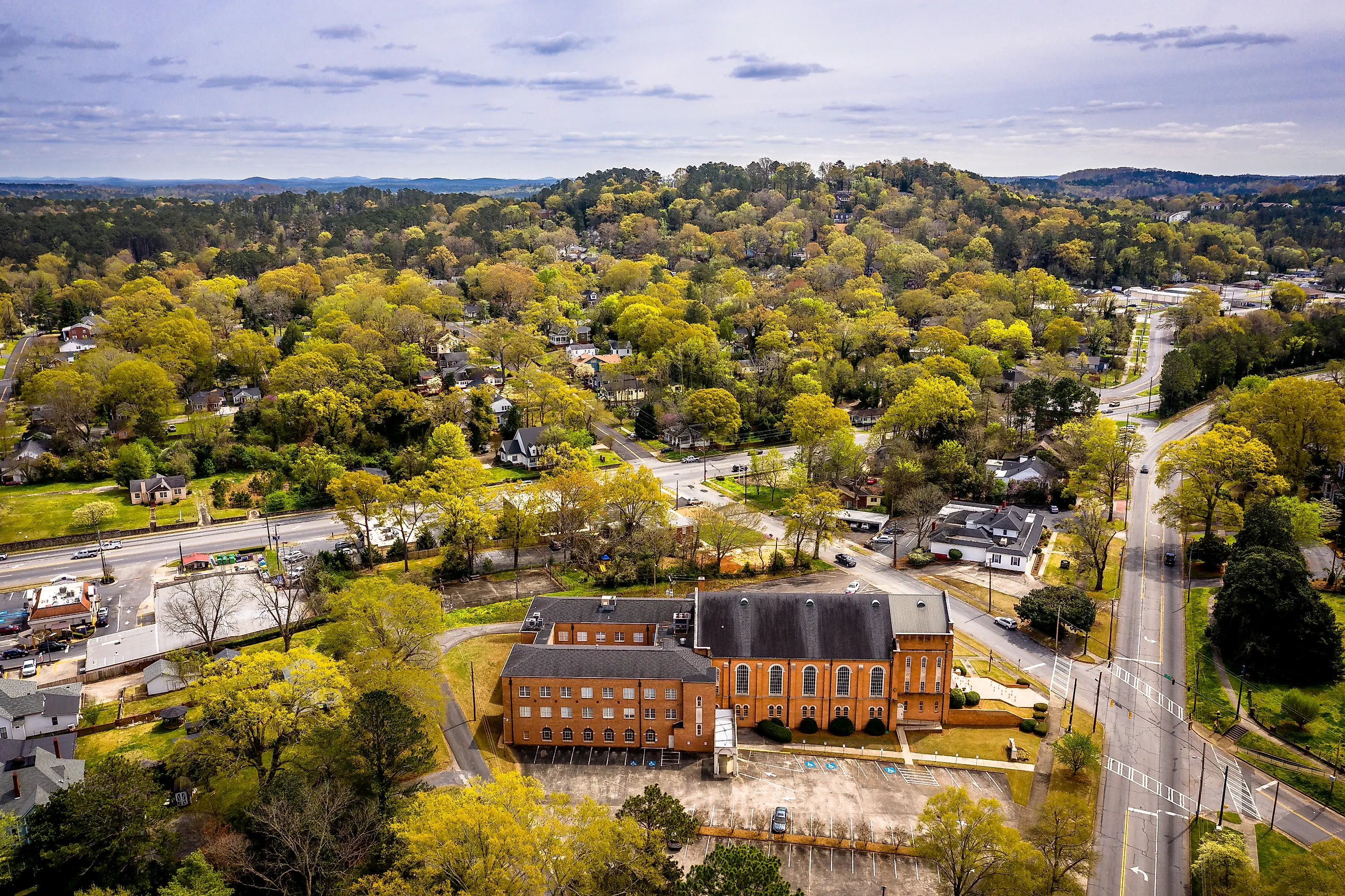
8 Best Places To Call Home In Georgia In 2025
Bordered by Alabama, Florida, South Carolina, and Tennessee, the Peach State is arguably among the nation's top states to live in and visit. Georgia is known for its Southern hospitality, business-friendly atmosphere, and variety of climates and lifestyles. It warmly hosts thousands passing through to Florida in the summer and winter, with popular destinations like Dahlonega. Many linger for the Appalachian views, fruit picking, vineyards, and fresh farm-to-table dining.
Georgia's economy is strong, diverse, and growing with job opportunities in various sectors. It ranked ninth-largest in America according to USAFacts, with leading sectors of real estate, government, and manufacturing. In addition to the outdoors, Georgia's affordable housing and property taxes make for a peachy life.
Brunswick
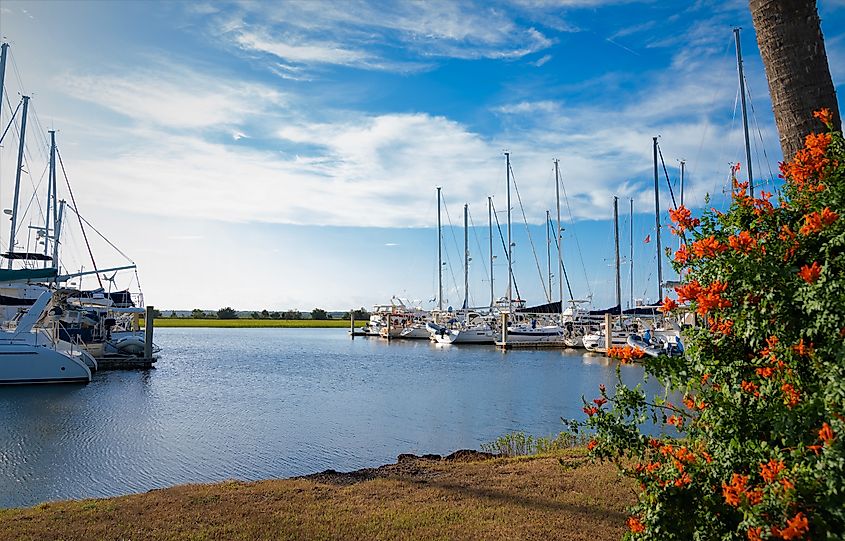
Home to roughly 15,500, Brunswick blends coastal charm and affordability with streets still bearing their colonial names and the Victorian-era Old Town Historic District. Framed by the Turtle and Back Rivers, there's no need for expansive vacations or plane tickets, with places like the 1,100-acre Blythe Island Regional Park. Like tourists, residents enjoy the area's beaches, sunset strolls, and an occasional wine cruise. Whether you're after the coastal lifestyle or the defining history and landmarks, it is more than accessible at the average housing cost of just $247,080.
Some 80 miles south of Savannah, Brunswick benefits from its proximity to major routes. The Port of Brunswick ranks among the busiest on the East Coast for automobile handling. The economy is driven by its waterfront location, with logistics around the port, manufacturing, and tourism, for it is also the gateway to Georgia's Golden Isles. In addition to retail trade, Mary Ross Waterfront Park and the adjacent Brunswick Landing Marina host year-round festivals and events. Meanwhile, the College of Coastal Georgia and a major hospital draw students and provide job opportunities. With average home values of $247,080, this town offers a scenic and affordable place to call home.
Cordele

This affordable, peaceful, and naturally appealing town of just over 10,000 is the “Watermelon Capital of the World” right in the heart of the Peach State. At an average home value of just $137,664, Cordele is ideal to settle for those seeking the beauty of the outdoors and fascinating American history. It is also "known around the block" for attractions like Cordele Motor Speedway and the SAM Shortline Excursion Train. In addition to grade schools and South Georgia Technical College, families enjoy easy healthcare access, including pediatrics.
The economy is reliant on agriculture, with additional opportunities in manufacturing, logistics, and even tourism. Despite lower household income, the seat of Crisp County benefits from hot summers and mild winters. Immediately west, residents enjoy the expansive Lake Blackshear through Georgia Veterans State Park, featuring campgrounds, picnic shelters, and a military museum on the evolution of American warfare. Every summer, the juicy town celebrates the Watermelon Festival with tasty and educational events around the industry.
Dahlonega
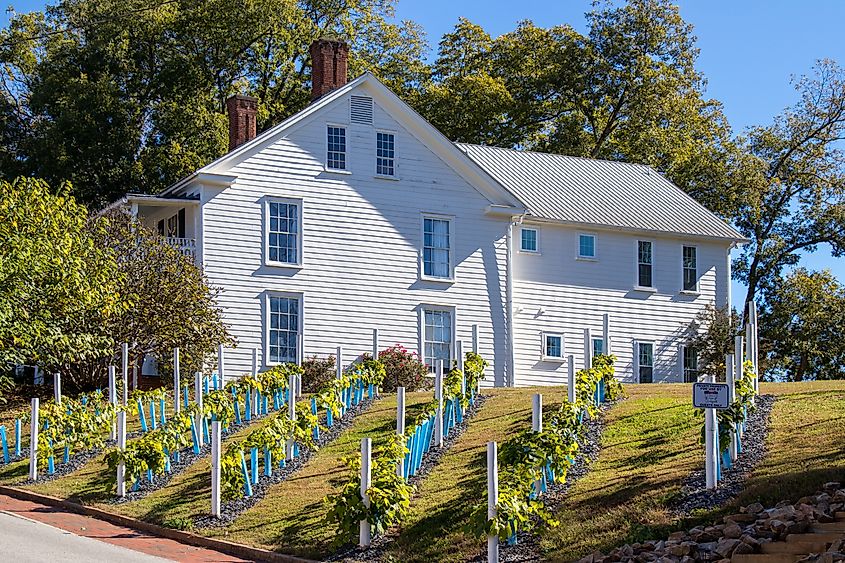
Built on mining and surrounded by farms and vineyards, Dahlonega is "oh so Georgia." Home to under 8,000, this culturally rich community is one of the most memorable and popular places to visit in the state, being minutes south of Chattahoochee-Oconee National Forest and 20 miles from the Appalachian Trail Southern Terminus. Those seeking a strong community find even the average house value of $382,025 worth the clean health bill.
From parks and playgrounds to community events, Dahlonega offers a peaceful corner and connected lifestyle tangled amidst the splendid natural beauty of North Georgia, with impeccable streets and access to natural sites, like Lake Zwerner Trail. In addition to well-regarded public schools in the area, Dahlonega is home to the University of North Georgia, so families with school-aged children don't have to uproot.
Decatur
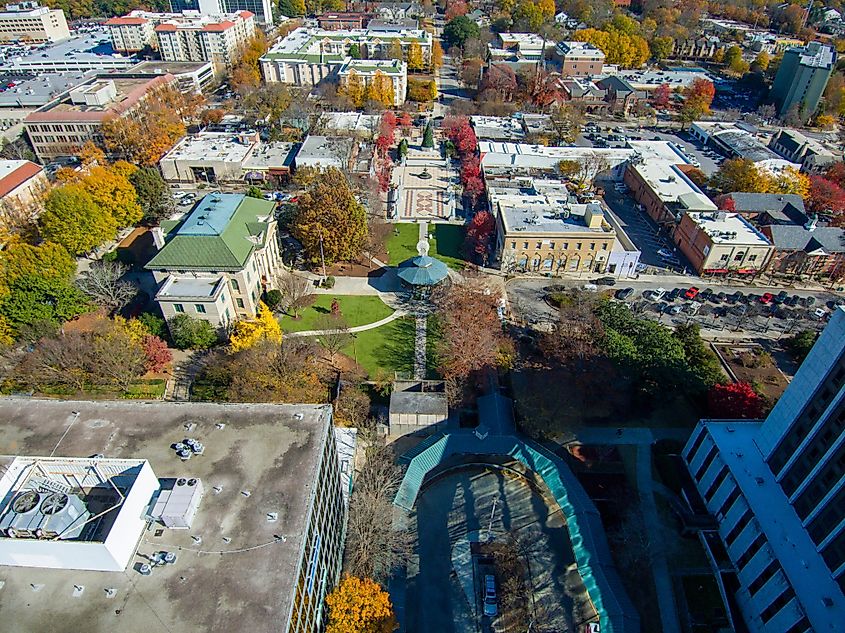
One of the largest cities in DeKalb County, Decatur is among the most livable places in the state. Home to 25,000, the county seat within the Atlanta metro area offers an easy work commute and "capital" attractions, accessible via major highways. The city's three MARTA stations provide bus service in and around. Decatur benefits from a diverse range of industries, including professional, scientific, technical, and education, with 63% of the population employed, making for an impressive median household income of $140,480.
All this, and average home values below Georgia's median at $294,196—residents don't feel shorthanded. The 15-block Decatur Square alone boasts over 45 restaurants and cultural venues, like the stately historic courthouse building housing the DeKalb History Center Museum. Families enjoy settling in the Diamond Head neighborhood, within walking distance of schools and near to the beautiful Shamrock Forest. Thought-out events like the Decatur Arts Festival and the Decatur Book Festival add a touch of charisma.
Douglasville

Douglasville was settled as a railroad was built in 1874 in a historic and natural area known as “Skint Chestnut” by Native Americans due to a large landmark chestnut tree. The town incorporated the following year and was named after an Illinois senator.
The economy, primarily driven by healthcare, retail trade, and transportation/warehousing sectors, employs 65%, while proximity to Atlanta's airport draws various firms and operations into the talent pool. Green spaces like Deer Lick Park offer residents opportunities for easy outdoor recreation. Home to under 40,000 today, residents benefit from diverse healthcare coverage, including the West Metro Endoscopy Center. The cost of living is on par with or lower than the state's average, as evident in the average house value of $312,138. There's easy highway access to Atlanta for work and entertainment, only to return to your cozy suburb.
East Point
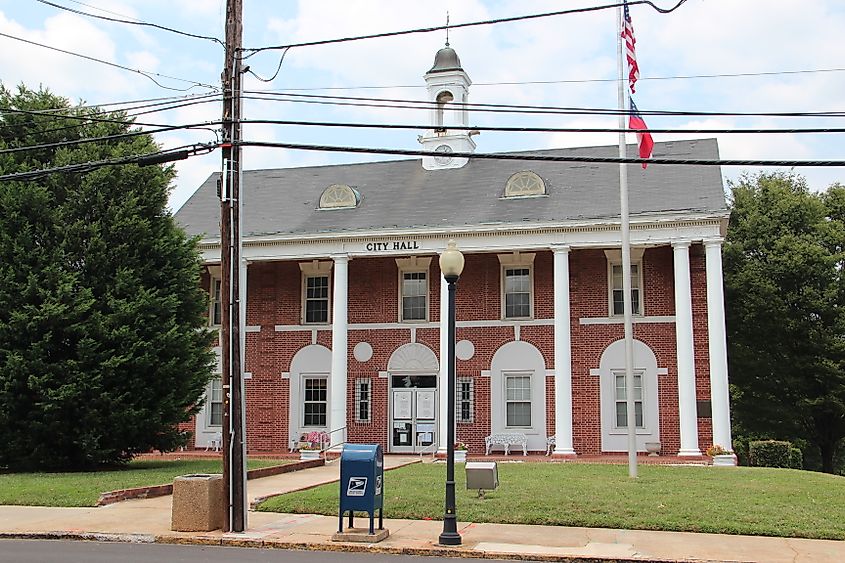
Founded in 1870 as the eastern railroad terminus of the Atlanta & West Point Railroad, East Point quickly developed in the Atlanta suburbs as a railroad hub and summer resort. Today, its selling point is affordable housing through quaint neighborhoods, like Colonial Hills, which predates the city itself. This compact commuter neighborhood next to highways offers spacious single-family two- and three-bedroom homes. Whether you're after luxurious homes, new developments, or access to schools, an average house value of $252,003 fits the bill.
Home to over 38,000, 66% are employed, earning a median household income of $59,000, often in administrative and support services or transportation and warehousing. Jefferson Park is a desirable neighborhood for shopping access and job opportunities, including industrial centers and small businesses, ideal for young professionals, from flat single-story properties to four-bedroom homes. Heritage Park is quieter and family-friendly, close to parks and schools, with options including four-bedroom houses and three-bedroom condos.
Martinez
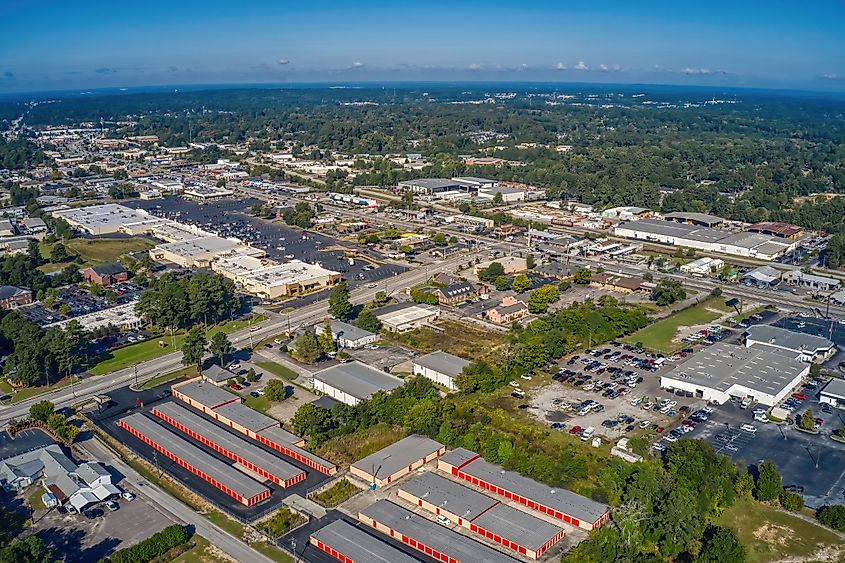
Edging into the riverfront border with South Carolina, Martinez offers a prolific mix of affordability, robust employment, and convenient access to services without compromising on safety and outdoor recreation. Evans Towne Center Park is a nearby public expanse with a concert pavilion, splash pad, dog area, and playground, plus bike sharing. In addition to an easy commute for work and capital nightlife, families benefit from grade school options within walking distance and the nearby public Augusta University for higher education.
Home to under 35,000, some 60% are employed in the economy driven by the healthcare and social assistance, educational services, and construction industries. Earning a median household income of $85,617, the area west of the Savannah River is expected to appreciate due to the positive home affordability ratio. For now, at the average house value of $280,210, residents enjoy easy access to amenities, parks, public transit, and health services, particularly world-class care right on site at Doctors Hospital of Augusta.
Rome
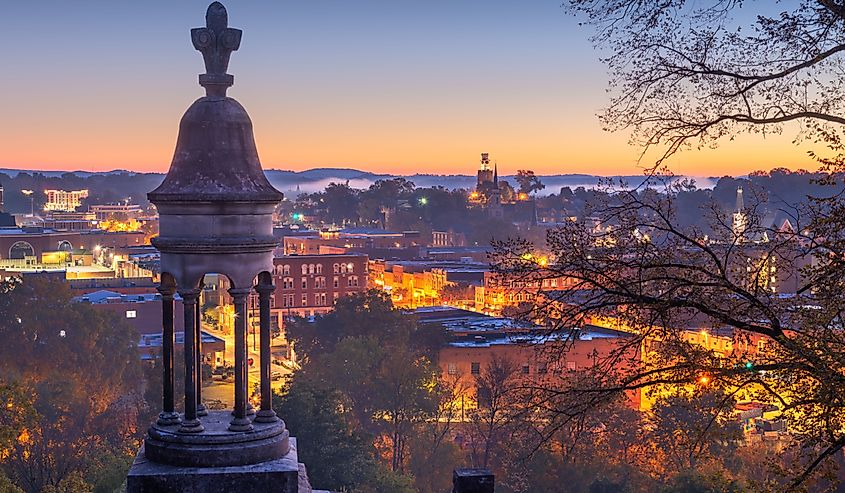
Rome's variety of architectural styles, amenities, and landmarks make for a unique and memorable place to live. At $230,603, median housing is over $100,000 cheaper than the state's. Home to under 40,000, residents earn a median household income of $51,106. The younger community enjoys affordable housing hidden behind greenery along the streets. Rome boasts numerous parks and historic landmarks, like the 1872 Clock Tower, towering with 109 steps to the top for city views, and a museum with historical murals.
The vibrant downtown area encompasses shopping, restaurants, and cultural attractions. In addition to manufacturing and education, Rome offers on-site access to various healthcare, including hospitals like AdventHealth Redmond and Piedmont Urgent Care. Just north, Oak Hill & Martha Berry Museum is a circa-1884 Greek Revival home and formal garden of the founder of Berry College, which is just a stroll north. Ridge Ferry Park is a family favorite with picnic tables along the Coosa River plus a playground and an outdoor concert stage.
Georgia is recognized for its affordability and family-friendly environment. Whether you're after Southern charm or the diverse landscapes with four distinct seasons to indulge in, small towns are the heart of everything you love about this state. Each town, with a head count of under 50,000, offers history, services, and an engaging cultural scene, like Brunswick's coastal allure and historic feel with modern amenities and affordability.
The outdoors translate into a healthy and balanced lifestyle, with foliage in the mountains and uncrowded Atlantic beaches at your first need for Vitamin Sea, with boastworthy island destinations. Living in the suburbs of Atlanta, residents don't sacrifice clean air and safety for convenience, commute, or entertainment, with venues and services onsite, within walking distance to schools and top-rated healthcare facilities.

